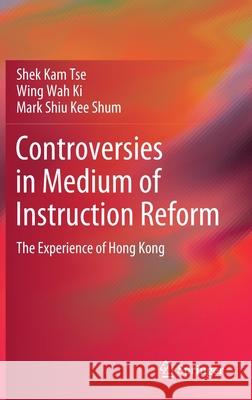Controversies in Medium of Instruction Reform: The Experience of Hong Kong » książka
topmenu
Controversies in Medium of Instruction Reform: The Experience of Hong Kong
ISBN-13: 9789811657832 / Angielski / Twarda / 2021 / 342 str.
Controversies in Medium of Instruction Reform: The Experience of Hong Kong
ISBN-13: 9789811657832 / Angielski / Twarda / 2021 / 342 str.
cena 442,79
(netto: 421,70 VAT: 5%)
Najniższa cena z 30 dni: 424,07
(netto: 421,70 VAT: 5%)
Najniższa cena z 30 dni: 424,07
Termin realizacji zamówienia:
ok. 16-18 dni roboczych.
ok. 16-18 dni roboczych.
Darmowa dostawa!
Kategorie:
Kategorie BISAC:
Wydawca:
Springer
Język:
Angielski
ISBN-13:
9789811657832
Rok wydania:
2021
Wydanie:
2021
Ilość stron:
342
Waga:
0.65 kg
Wymiary:
23.39 x 15.6 x 2.06
Oprawa:
Twarda
Wolumenów:
01
Dodatkowe informacje:
Wydanie ilustrowane











